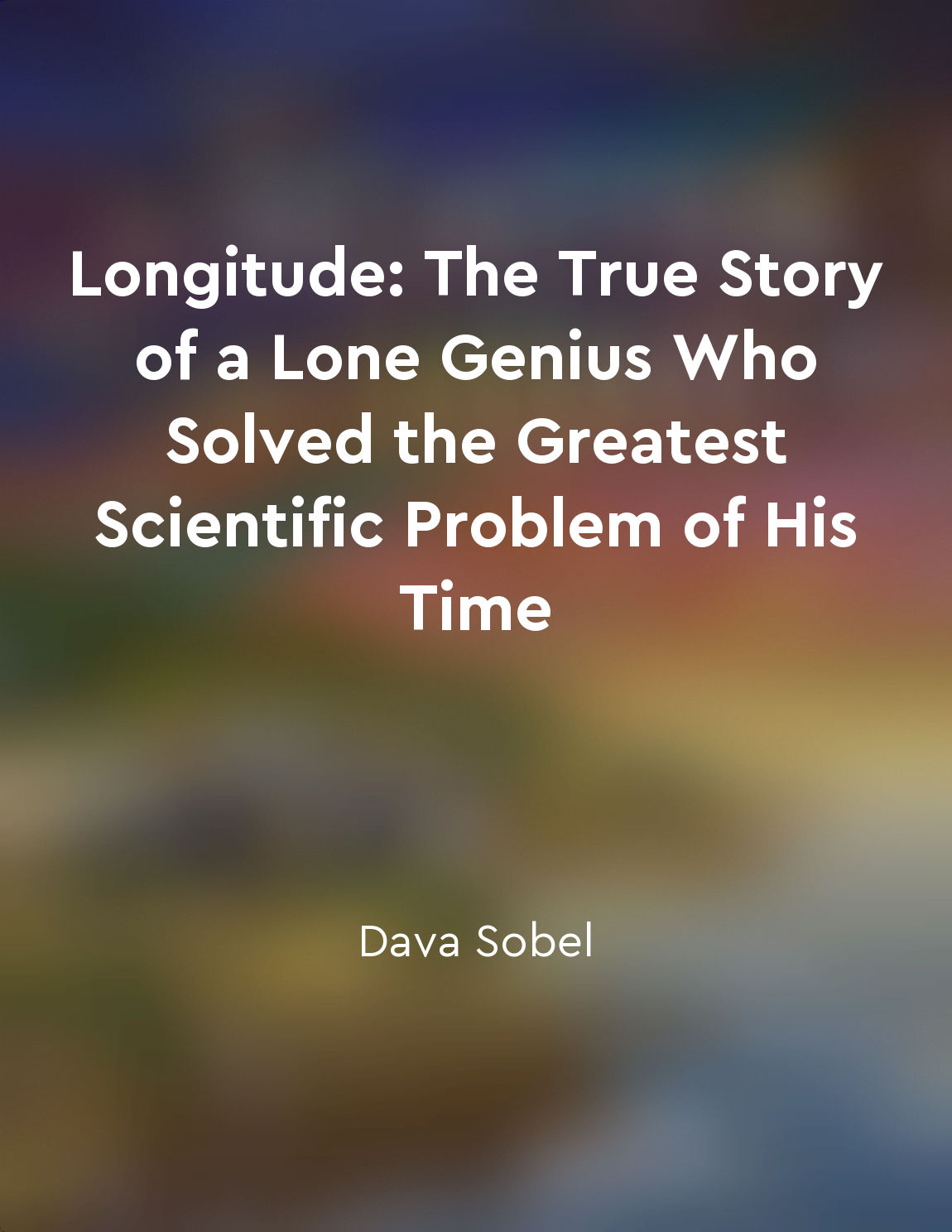Maritime disasters underscored the urgency of finding a solution from "summary" of Longitude by Dava Sobel
Maritime disasters, with their tragic consequences, served as a stark reminder of the pressing need for a solution to the problem of determining longitude at sea. The loss of countless lives and valuable cargo due to ships veering off course highlighted the urgency of finding a reliable method for sailors to pinpoint their exact location on the vast expanse of the ocean. The frequency and severity of maritime disasters spurred governments, scientists, and inventors to intensify their efforts in search of a solution. The economic implications of lost ships and goods, as well as the human cost in terms of lives lost at sea, made it imperative to find a way to accurately measure longitude. The gravity of the situation demanded a concerted and focused approach to resolving the issue once and for all. The quest for a reliable method of determining longitude was further fueled by the recognition that existing techniques were inadequate and often led to disastrous outcomes. Traditional methods such as dead reckoning and celestial navigation were imprecise and prone to error, leaving sailors at the mercy of unpredictable and treacherous seas. The need for a more accurate and dependable solution became increasingly apparent as maritime trade and exploration expanded, putting more ships and lives at risk. In the face of mounting pressure and the growing awareness of the need for a solution, the search for a method of determining longitude took on a new sense of urgency. The race to solve this scientific and technological challenge became a matter of national importance, with governments offering substantial rewards and support to anyone who could devise a reliable solution. The high stakes and widespread recognition of the problem ensured that the quest for longitude remained a top priority for the scientific community and governments alike. The tragic consequences of maritime disasters underscored the critical need for a solution to the problem of determining longitude at sea. The urgency of finding a reliable method was driven by the devastating impact of lost ships and lives, as well as the economic repercussions of failed voyages. The search for a solution gained momentum as existing methods proved inadequate and unreliable, prompting a concerted effort to develop a more accurate and dependable way to navigate the world's oceans.Similar Posts
The longitude problem had a profound impact on maritime history
The quest for a reliable method to determine longitude at sea consumed the minds of the greatest minds of the age. The inabilit...

Revolutionizing navigation
The concept of revolutionizing navigation was a bold and audacious idea that captured the imagination of many in the 18th centu...
Harrison's clocks revolutionized global navigation
For centuries, mariners struggled to accurately determine their longitude at sea, often resulting in disastrous consequences. T...

Celebrating a lone genius
The story of the lone genius who solved the greatest scientific problem of his time is a testament to human ingenuity and perse...

Quest for longitude
The search for a solution to the problem of determining longitude at sea consumed the minds of many in the 18th century. Ships ...
